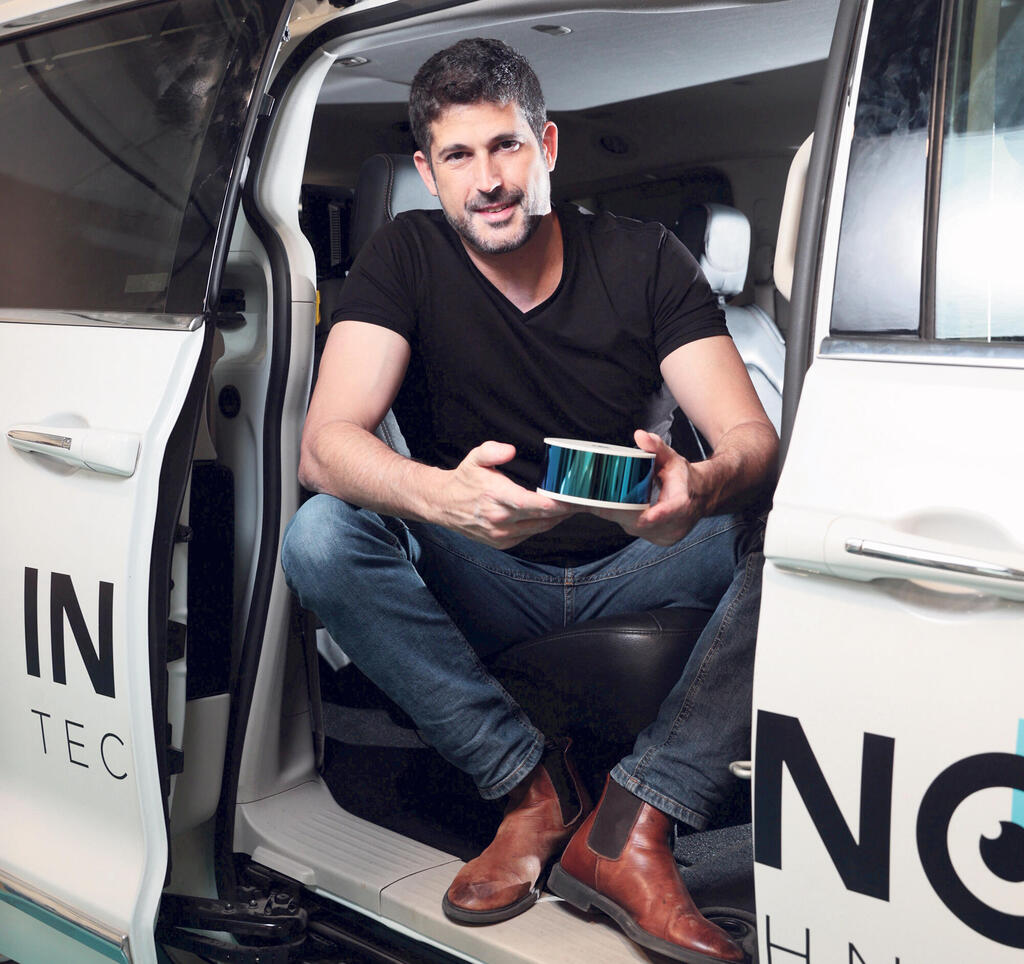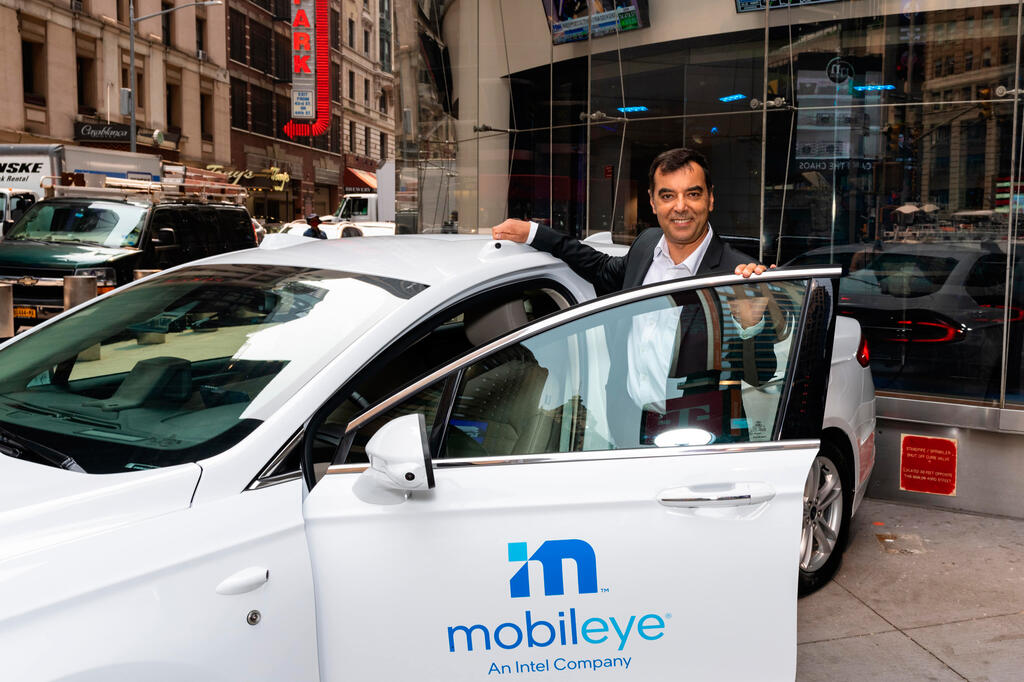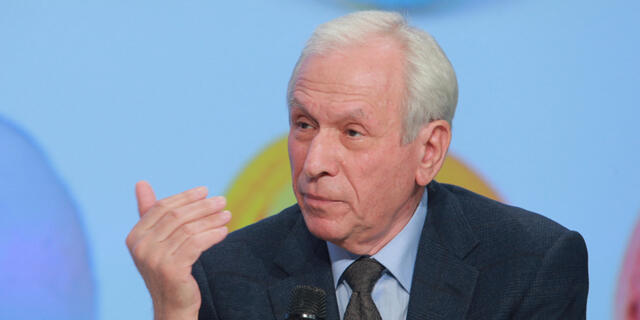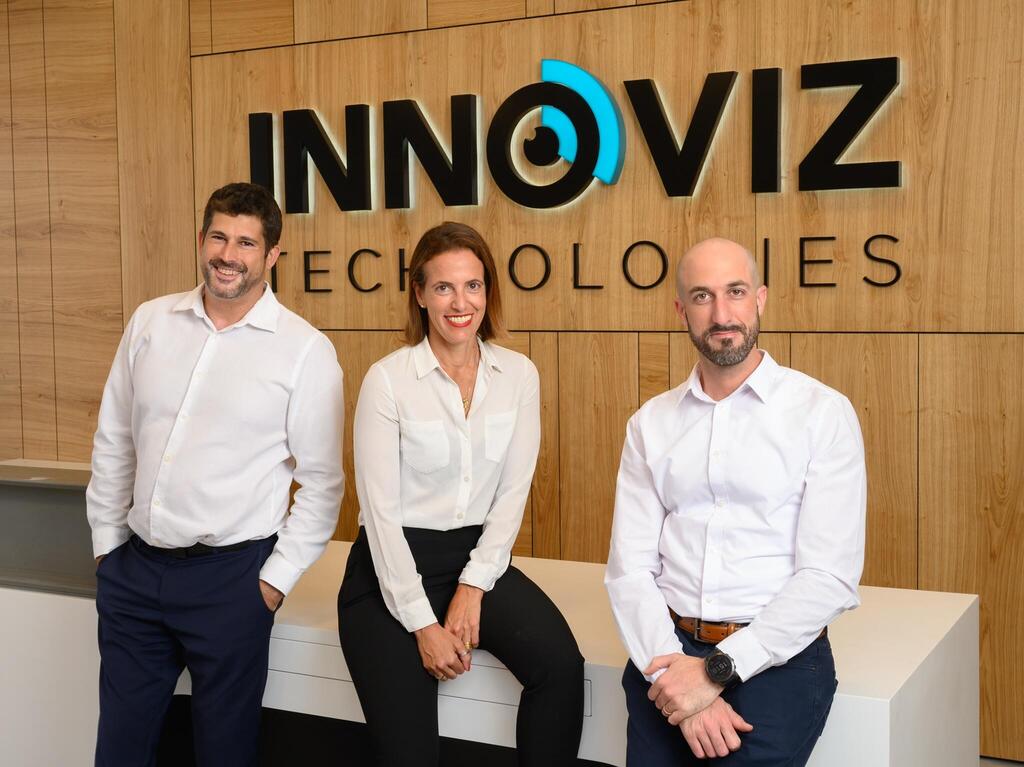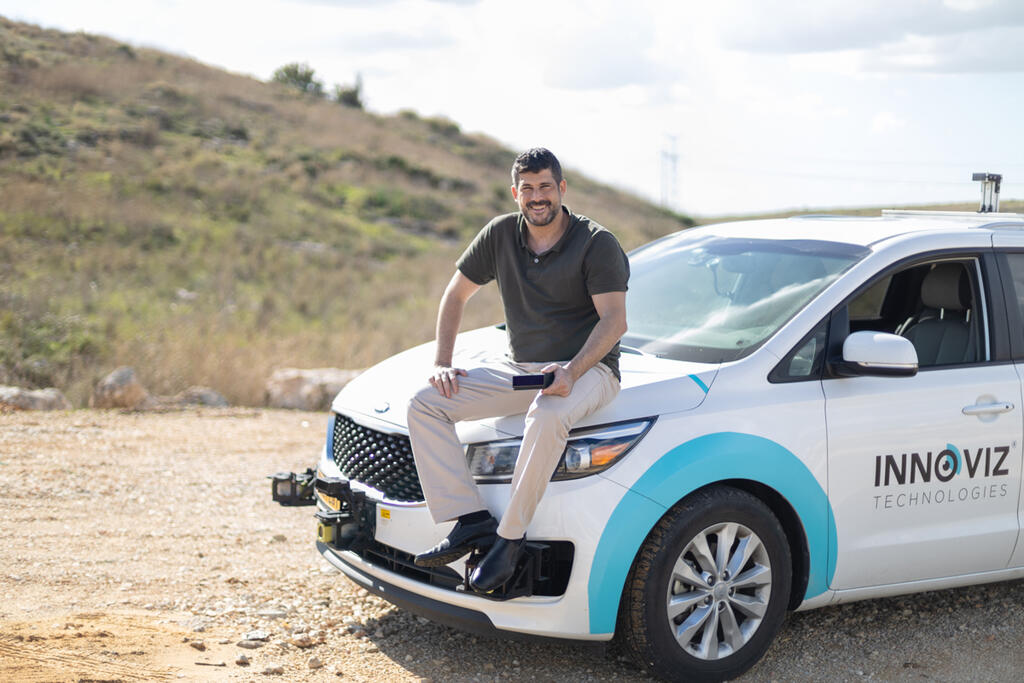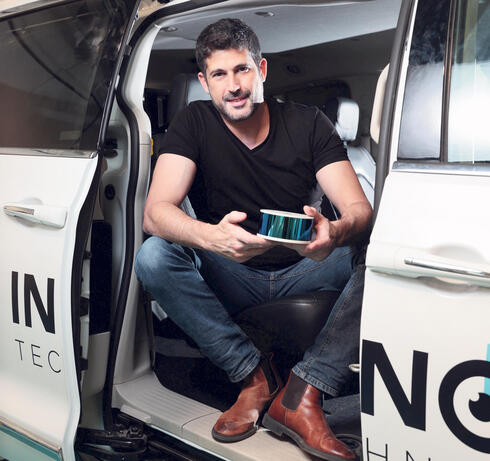
Interview
Innoviz CEO: "Elon Musk was wrong. The massive investment in Tesla will go down the drain"
Omer Keilaf is not bothered by Tesla abandoning LiDAR technology, nor worried when investors ask what's going on with Innoviz's stock. The prodigy of Israeli auto-tech is in a confident mood: "At the current price of LiDARs, I can sell 30 pieces to Tesla at the same cost it demands from its customers to make a vehicle autonomous"
Omer Keilaf did not expect this. Considered by many as one of the prodigies of Israeli high-tech, he has been receiving plenty of unpleasant emails over the last year. But it has also gone beyond emails: "A few months ago I was with my wife at the supermarket, and suddenly someone tapped me on the shoulder," Keilaf (40) recounts. "I turned around, I saw someone I don't know and whom I've never met, and he asked, 'Why is the stock going down? What happened yesterday?'. I was shocked."
Investors are also shocked. The stock in question is that of Innoviz - the pioneer of LiDAR, the "eyes" of the autonomous vehicle, which became the first Israeli company to go public through a SPAC merger. The company, which Keilaf founded with friends from the IDF’s elite Unit 81, was issued through a merger with a SPAC in April 2021, during the peak of the tide in technology stocks, at a value of $1.4 billion. It raised $371 million, and unlike most of the other SPACs, all the funds flowed into company coffers, rather than the shareholders. "SPACs are the best thing that ever happened to Israeli high-tech," Keilaf told Calcalist at the time. He still thinks so, but since then the stock has fallen by 50% and the company is trading at a value of around $700 million. This is exactly why Keilaf is flooded with inquiries from angry investors, who put a lot of money on a dream that is not coming true.
It can be said that Innoviz has "only" fallen by 50% since the IPO, in contrast to the 80% and 90% that other technology companies have lost. Its share price even climbed a little over the past month. But of course this does not satisfy the investors, and bothers Keilaf, who had gotten used to the money flowing freely and adulation from investors.
But there are two ways to look at the numbers that Innoviz promised investors at the time of the offering. On the one hand, it is a year behind the forecasts, which is worrying. On the other hand, in contrast to many Israeli SPAC IPOs, which promised results that are disconnected from reality, Innoviz is expected to record revenues of several tens of millions of dollars already this year - and if the stars and the competition line up in its favor, in two years it will pass the $100 million revenue mark. This is happening because its market is about to explode. If in 2021 the global LiDAR market was estimated at $100 million, in 2030 it is expected to reach $8 billion. Those who still doubted this trend could have seen where the market is heading at the beginning of the month at CES, the most important consumer electronics exhibition in the world. LiDARs garnered enormous attention there. The dream of a fully autonomous vehicle will likely not become a reality for at least the next two decades, meaning the real business will be around Level 3 autonomy, in which LiDARs play a crucial role and in which Innoviz is a major player.
One of the people who did not miss the signs is Amnon Shashua of Mobileye, who recognized the maturation of the LiDAR market. Mobileye is developing its own technology, but the talk in the industry is that it is in negotiations with Innoviz and is interested in it not only as a potential supplier, but also as a potential purchase. Mobileye's reissue in October 2022 will allow it to complete such a move in a stock deal without turning to its parent company Intel, as was the case with the acquisition of Moovit in 2020.
"Within a few weeks they offered me $16 million. I was not 30-years-old yet"
Innoviz got to this place at breakneck speed. "On December 31, 2015, I informed my wife that I was leaving the startup I was working for, and that in the coming year she would not see a salary from me, because I want to start something of my own," Keilaf recalls. The holy grail was LiDAR (Light Detection and Ranging), a laser sensor integrated into a 3D camera, which is installed in autonomous vehicles and detects obstacles even when simple sensors and ordinary cameras have difficulty doing so due to direct sunlight, darkness or rain. At the time it wasn't even called LiDAR because the product didn't exist.
"Friends who served with me in Unit 81 linked me to Zohar Zisapel, who was a mythological figure in the unit, being appointed to head of the unit at the age of 27," Keilaf recounts. "I said, 'why go straight to the top? It's better to go after someone less senior.' But they told me to go, so on January 7 I went to see Zohar. With no presentation, no nothing."
Luckily for him, Zisapel, the co-founder of the RAD group and a veteran investor in Israeli high-tech (along with his brother Yehuda), did not need a presentation: "He recognized the potential of Innoviz better than I did, because he had already invested in the automobile industry and recognized the need. He immediately said that it would move forward a lot faster than I thought. I walked out of that meeting with a million dollar check in my hand. It was only a week after I quit my job."
The speed at which things progressed was dizzying. "I was shocked," Keilaf admits. "When I left my job, I told my friends to wait and not resign, because it would take a long time until I raised the money - and suddenly I needed them immediately. Zisapel connected me to additional funds. I went from one to another, and still didn't have time to prepare a presentation, and it was simply amazing. Everywhere I went I received money. Within a few weeks I had $16 million on the table. And even when I already had this dream amount, which I did not need at all, I continued to go to meetings with funds, because this is something that has never happened to me in my life: I entered a room, talked for an hour and left with a check. I wasn't even 30 years old yet, and I just didn't know how to stop it. I ended up taking $9 million, which was also more than I thought I needed. From there it was kind of like 'Ocean's 11,' because I needed a team that knew how to deliver on what I promised to investors.”
The task of recruiting talent was more complex than raising the money, but a few months later Keilaf had a founding team that included Oren Rosenzweig, Oren Buskila and Amit Steinberg, along with 18 other engineers.
Those were the days of the height of the autonomous vehicle dream, and Israel was at the center of interest after Mobileye's 2014 IPO at a value of $5 billion. A year later it was acquired by Intel for $15 billion. The spotlight was turned on the car of the future, and tens of billions of dollars flowed into the companies in the market. But for Keilaf there was something more, beyond the attraction of developing futuristic technology. "For me, the event really begins one Friday evening in 1992," he says. "I remember this evening very well. My father was abroad, my older sister, who was 17 years old, went out to hang out with friends, and I sat with my mother and my other sister to watch a movie. When I woke up on Saturday morning, my mother was not at home, and when I asked what happened, they told me that they had called her and asked her to come and identify my older sister, who had been in a serious car accident. Luckily she survived, but the injury was very severe, she was hospitalized for four months."
I can still hear the trauma in your voice now.
"I wasn't in the car during the accident, but I felt like I was in it. The accident changed my life a lot, in a lot of ways. My parents invested in my sister's rehabilitation, my mother closed the ballet studio she had, our financial situation changed, and I also joined the effort. I became very independent , and at the age of 12 I started working at the neighborhood deli. I felt that this was my way of helping the family."
Growing up quickly also resulted in him enrolling for electrical engineering studies in the IDF, where, at the age of 19, he already become a tutor. He currently fulfills his love for tutoring in a program in which the Innoviz offices in Rosh Ha'Ayin host, every week, a different high school class, whose students spend an entire day in the company. Keilaf himself spends an hour talking to the students about entrepreneurship and technology. "This is my favorite time of the work week," he says. "This visit shows the children what can be done with physics and mathematics. They leave here with a twinkle in their eyes."
"True, plans were delayed, but our current value doesn’t reflect that"
Even though he grew up and became the CEO of a company that employs 460 people, Keilaf himself is still a bit of a bright-eyed student who is passionate about mathematics and physics. Every time the conversation turns to business, the stock or investors, he starts to fade and changes the subject to his favorite topics: the sensors, the lenses, in short - the technology. On his desk he keeps all the models of Innoviz’s LiDARs. At the entrance to one of the laboratories is a mini-museum he established, which exhibits the evolution of the products, and on a huge wall at the entrance to the building hang all the patents registered by Innoviz employees.
Four months ago, Innoviz moved to a huge building in Rosh Ha'Ayin, which it fully rented for a decade. Although these are not offices at the center of Tel Aviv, the size of the building makes it clear that this is a considerable expense for a company that does not yet have actual revenues: everything is built on and for Innoviz’s order book, which stands at $7 billion.
Recently, a major turning point was registered in the company, which, should it go according to plan, may boost it well above its SPAC valuation of $1.4 billion. In August, an agreement was signed according to which Innoviz will be the LiDAR supplier for the new vehicles produced by Volkswagen. The agreement is expected to generate revenues of $4 billion for Innoviz, but its importance goes beyond even this huge amount. Firstly, this is the first contract that positions the company as a direct supplier (Tier 1), and not require it to work through an intermediary manufacturer, as is the case in its agreement with BMW, which will start generating revenue next year. Second, the fact that Volkswagen sets the tone in the automotive industry may result in more agreements with other companies in the industry.
"We had to move our offices," says Khilaf, "because the previous one, also in Rosh Ha'Ayin, was already too small, and we also needed space for production lines. But during the year and a half of working here, when I came for tours or when I passed the building on the way to the old office, I would have anxiety and palpitations. It was only after Volkswagen chose us that I felt happy to come here. It doubled our rental costs, but it is still Rosh Ha'Ayin. It was important for us to stay here, because the location on Route 6 allows employees to get here easily from both Be'er Sheva and Haifa.”
The contract with Volkswagen is impressive, but when will it start to be felt in your reports? You are far from the forecasts you presented before the IPO.
"This year, BMW models will start traveling with our LiDAR, as will a network of autonomous buses deployed by another German customer - not as a pilot, but shuttles on several lines. Volkswagen will not appear in reports next year, because it is now entering joint development. In the meantime, we will receive $10-40 million dollars for the work, some of it already with the signing of the agreement and some at the launch. We just started, and obviously we are underpriced in terms of value, but you have to understand that the car industry is very complex, most people don't know how it works. These are 10-year projects, even 15. We won a $4 billion contract but how is that reflected in our current value?"
It's nowhere near to what you predicted in the SPAC presentations.
"It is true that there is a delay of a year or a year and a half, but it will happen. We thought that Volkswagen would make a decision in September 2021, but they delayed it for almost a year, and it also affected us. I am not a representative of the SPAC companies, but I still think the SPAC merger is the most amazing thing that happened to us. In the automobile industry, you have to go through a desert, and precisely because of this desert, Israeli companies are usually sold to someone else. Here we got an opportunity to become a big company. Do you think Volkswagen would look at me as a direct supplier if I had $20 million in the coffers? Only after the SPAC and thanks to the additional funding, I could tell them that I would be here for another ten years. Many companies misused the SPAC, but when Innoviz breaks out it will become a case study that will show how the SPAC merger resulted in our success."
"A fully autonomous vehicle? I hope we see one in our lifetime"
The amount of actual revenue depends, of course, on the number of autonomous vehicles that Innvoiz’s customers will sell, and on the question of whether the necessity of LiDAR in each of them will indeed be proven. After the initial hype at the time of the founding of Innvoiz, when its direct competitors Luminar and Velodyne were also established (they were both also issued on the Nasdaq during the height of the SPACs), Elon Musk dropped a bomb on the market, when he claimed in 2019 that autonomous vehicles do not need LiDAR. It is expensive, he claimed, you can get by with regular cameras. Tesla's autonomous vehicle package does not have LiDARs. This week, at the giant electronics exhibition CES in Las Vegas, which Keilaf also attended, his competitors at Luminar staged a dramatic demonstration. Luminar's CEO, 27-year-old Austin Russell, drove a Tesla with semi-automatic capabilities at a speed of about 64 km/h and placed a crash test dummy simulating a child in front of the vehicle. The Tesla did not brake in time and ran over the dummy, while an autonomous vehicle equipped with LiDAR stopped at a reasonable distance from it.
Isn't it scary to argue with Musk and the success of Tesla, which is the closest thing to an autonomous vehicle?
"Today it is very easy to say that Musk is wrong. He is of course a man who knows what he is talking about, but remember that when Tesla was a startup, and in 2016 people were saying that it might shut down any moment, LiDARs did not exist yet. They were simply not an option for him. At the current price of LiDARs, I can sell 30 pieces to Tesla at the same cost it demands from its customers to make a vehicle autonomous."
Where did he go wrong?
"In the planning, which is why he is stuck today. As the autonomous vehicle progresses, it has nowhere to go. Tesla's vehicle will not be able to be autonomous: it makes driving decisions, but the responsibility will be on the driver, and not on Tesla, because it does not meet the regulatory requirement that for every function in the vehicle there will be redundancy. The vehicle will only be able to make decisions based on a camera as long as there is someone sitting in it to look at the road. The investment in Tesla will go down the drain, because it will not reach the capabilities of a car manufacturer that uses LiDARs."
But in recent years the vision of the autonomous vehicle has been repeatedly delayed.
"You need to understand exactly what an autonomous vehicle is. The field is divided into levels: at Level 0 the driver drives, at Level 1 the vehicle beeps and advises, Level 2 is already active and the vehicle makes decisions such as braking or maintaining a lane, it intervenes and not only advises. A Tesla is an advanced Level 2, making decisions while supervising. The quantum leap is from Level 2 to 3, because the vehicle already takes responsibility. This is what is happening today: the driver will still have to be there, but will only intervene in situation where the vehicle could not make a decision.
"Level 5, which is the dream of a vehicle that drives completely by itself, is not realistic - not because of the technology, but because of the endless amount of tests for scenarios that need to be carried out to meet the regulatory requirements. I believe that the market will converge to Level 3, which will allow autonomous driving on highways, and the driver taking over at the wheel when entering urban areas with complex situations and many people. BMW will launch a model in Germany this year with our LiDAR, where the driver can lie down while driving on the highway. But private cars will not reach Level 5 for many years. I hope we will see it in our lifetime."
"I have to be the psychologist of the investors. It's a headache"
Even if we see autonomous vehicles equipped with LiDARs moving en masse on the roads of the world, Innoviz needs these LiDARs, or at least many of them, to be of its own production, and not of its competitors. It is estimated in the industry that the division within the market will be completed in the coming year, and the players in it are working vigorously to grab as big a slice as possible. Luminar has signed agreements with Volvo and SAIC, the largest car manufacturer in China. Velodyne merged with another startup in the field and is fighting for its own contracts. At the same time there are also two traditional auto parts players, Valeo and Denso, who already sell their own LiDAR, perhaps less sophisticated, to Honda, Mercedes, Toyota and Lexus. And Mobileye, as mentioned, is not sitting idly by. Each vehicle requires a different LiDAR. Innoviz’s is considered elegant, because it sits on the vehicle's front grill, unlike that of Luminar, for example, which sits on the roof of the vehicle and gives it the appearance of a taxi.
Being close to Mobileye also plays to the advantage of Innoviz, which benefits from the progressive image of the Israeli autotech industry. The fact that Israel remains neutral in the trade war between the United States and China also plays into Innoviz’s favor, and makes Israeli companies attractive suppliers for the European automotive industry, which wants to sell to the Chinese.
"When we started, there were 80 LiDAR companies in the world, and now we are less than five players. The competition is about size, price and performance, but mostly about risk. Car companies are making decisions today that will shape the face of our industry in the future. In the end, there will be two or three players in the market, and they want to know that they don't bet on the wrong horse. Bottom line, we close deals with car companies and the competitors don't, but it's hard for investors to see the long term, they want to see results on a quarterly basis."
This is exactly what made them turn on your IPO, which was seen as too early. Maybe you should have raised more private capital. It might be difficult for people who are as immersed in technology and product as you are to manage a public company.
"My success is measured in the long term, not the short term. I don't ignore the short term, but I also can't ignore the fact that all the car companies will make the decision on LiDAR in the next six months. I can't slow down these projects to please the investors. Within six months the market will converge, and those who don't win will be left out. I want to have a bag of huge deals."
So maybe you don't have to be the CEO. Maybe it's better to let someone else deal with the numbers and the investors, and work like Nir Zuk of Palo Alto Networks - to be the one who deals with the technological aspect and development.
"It's a headache to be the psychologist of the investors and the employees, some days it sucks," he admits honestly. "Being CEO of a public company is not the most fun thing in the world. Before the Volkswagen announcement it was very difficult for me to deal with the investors, very frustrating to be on the brink of something so big and not be able to tell. Many times I just want to hug the investors who complain, but I can't tell them anything other than that I'm doing my best."
In the meantime, two of the three co-founders have left, leaving only Oren Buskila, the Chief R&D Officer. How does this affect the company and hiring?
"We are still recruiting employees, but doing so responsibly. Although we sit in Rosh HaAyin and we did not go crazy with salaries because we became a public company, it was not difficult for us to recruit employees, because for them there is value in working here. In many high-tech companies there is no soul, and they buy your soul with perks. I know this, because after my release from Unit 81 I worked in startups, and at first it was very difficult - and this is despite the fact that in my first job I landed at Anobit, the first startup that Apple acquired in Israel. From developing something that you are emotionally and morally connected to in the army, I moved to a company that in the end is making a chip that will allow people to save more photos on their phones. Every morning in the office I asked myself 'why are you doing this'. That's why I wasn't a good engineer at Anobit, I didn't bring what I could. I knew I could do more."









